Gates coaxes China on giving
Updated: 2015-11-24 11:37
By Amy He in New York(China Daily USA)
|
|||||||||
Bill Gates says he is hopeful that China will pass new legislation to make it easier for people to donate to philanthropic causes.
The Microsoft co-founder said that the "status quo is not ideal" and that the laws in place were not designed for huge philanthropic institutions.
"We've had a chance to talk with the Ministry of Civil Affairs, share our thoughts. We've hired consultants to write reports, to think about this," he said.
But Gates has high expectations for the scale and quality of Chinese philanthropy, he told CCTV in an interview in China.
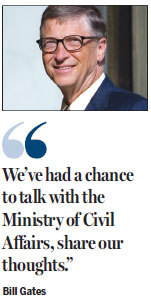
Gates was in Beijing to inaugurate the China Global Philanthropy Institute and the Joint Philanthropy Education Initiative. The institute and initiative were started by the Bill & Melinda Gates Foundation along with Alibaba's Jack Ma and three other philanthropists, according to Bloomberg.
A state dinner was held at the Diaoyutai State Guest House in Beijing on Nov 13 for the inauguration ceremony for the institute, where Ma and more than 100 philanthropic celebrities from all over the world attended.
Gates has a history of philanthropy in China. Last year, he helped start a program at Beijing Normal University that focused on philanthropic education.
As the number of wealthy Chinese grows, the attitudes toward philanthropy are changing, though the mechanisms and motivations may not be established, as the government does not provide as many tax incentives for givers compared with countries like the US, which allows donors one of the world's most generous tax incentives.
"Currently, there are very few tax incentives for individuals to donate, and only a handful of charities are allowed to give donors a tax deduction on their gifts," said Dien S. Yuen, managing director of San Francisco-based Kordant Philanthropy Advisors.
"Many individuals shy away from public recognition because they fear a backlash of public sentiment. Donors publicly announcing and promoting their gifts are perceived as engaging in charity for their own self-interest."
Yuen said that Western countries have formal systems that helped define philanthropy and charity through years of practice, but that China's historical and social context is very different.
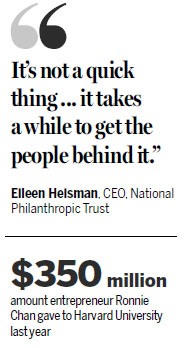
"The new class of wealthy's approach is very unique based on their own experiences and what they believe is right for them and their country," she said.
Eileen Heisman, president and CEO of the National Philanthropic Trust, said that countries with a socialist orientation often do not have as developed a philanthropy environment compared with countries like the United States, where the government relies on private giving.
"I think what you're seeing is that as private wealth is accumulating in China, there would be an interest in motivating people to help philanthropically, to help people in society achieve their goals," she said.
"It's not a quick thing; it doesn't happen quickly in a country where the policies aren't set that way, so it takes a while to get the people behind it, to get officials to understand it, and to move in that general direction," Heisman said.
In 2013, charitable giving in China was about 4 percent of the level in the US in 2013, and China was ranked 133rd out of 135 countries for donating money. But the government is looking to change that; in October, the Standing Committee of the National People's Congress more clearly defined in its charity draft law what charity organizations and their responsibilities are.
Rich Chinese also are making headlines for marquee donations, such as Ronnie Chan, a Hong Kong entrepreneur who gave $350 million to Harvard University last year, and Wang Jianlin, chairman of Dalian Wanda Group, who gave 1 billion yuan ($156.5 million) to the Nanjing government.
amyhe@chinadailyusa.com
(China Daily USA 11/24/2015 page1)
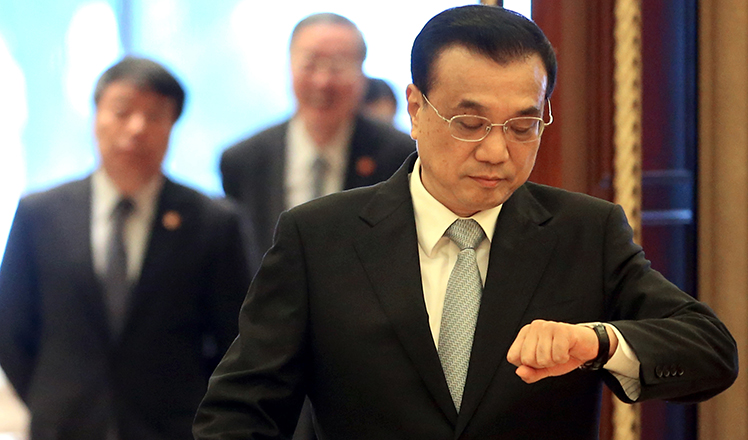
 Premier Li's fast-paced diplomacy
Premier Li's fast-paced diplomacy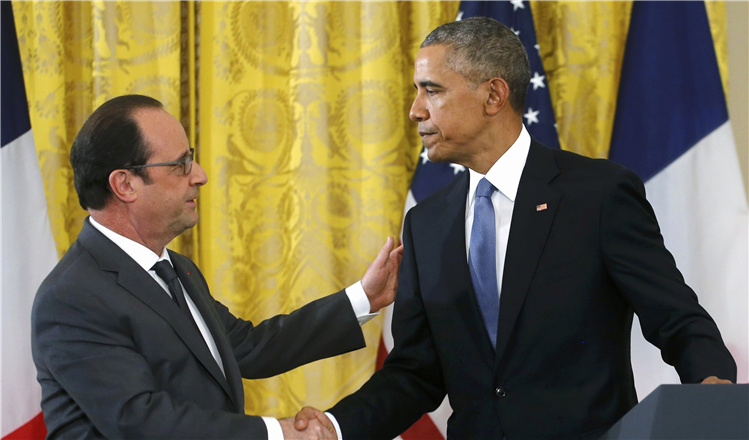
 Obama: US, France stand united against IS, terrorism
Obama: US, France stand united against IS, terrorism
 Charming art made from everyday objects
Charming art made from everyday objects
 Ukraine sculptors set up workshop in China
Ukraine sculptors set up workshop in China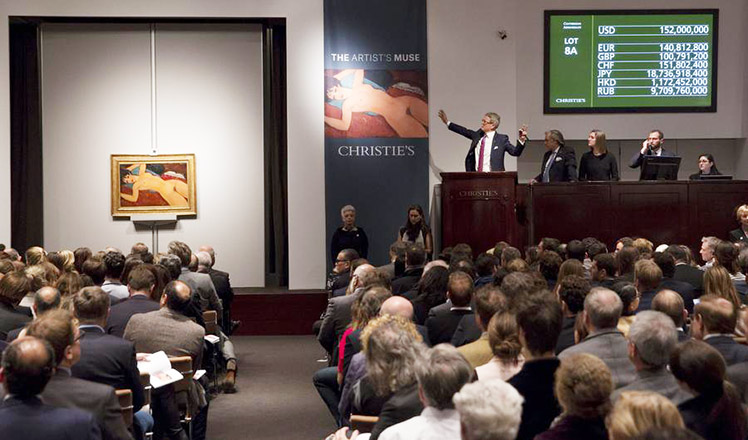
 Billionaire pays for $170m Modigliani with credit card
Billionaire pays for $170m Modigliani with credit card
 Crime stoppers meet in DC
Crime stoppers meet in DC
 Premier: China ready to advance Baltic Sea high-speed rail project
Premier: China ready to advance Baltic Sea high-speed rail project
 Beijing greets the sun after 19 days of gloom
Beijing greets the sun after 19 days of gloom
Most Viewed
Editor's Picks

|

|

|

|

|

|
Today's Top News
Chinese president arrives in Turkey for G20 summit
Islamic State claims responsibility for Paris attacks
Obama, Netanyahu at White House seek to mend US-Israel ties
China, not Canada, is top US trade partner
Tu first Chinese to win Nobel Prize in Medicine
Huntsman says Sino-US relationship needs common goals
Xi pledges $2 billion to help developing countries
Young people from US look forward to Xi's state visit: Survey
US Weekly

|

|








